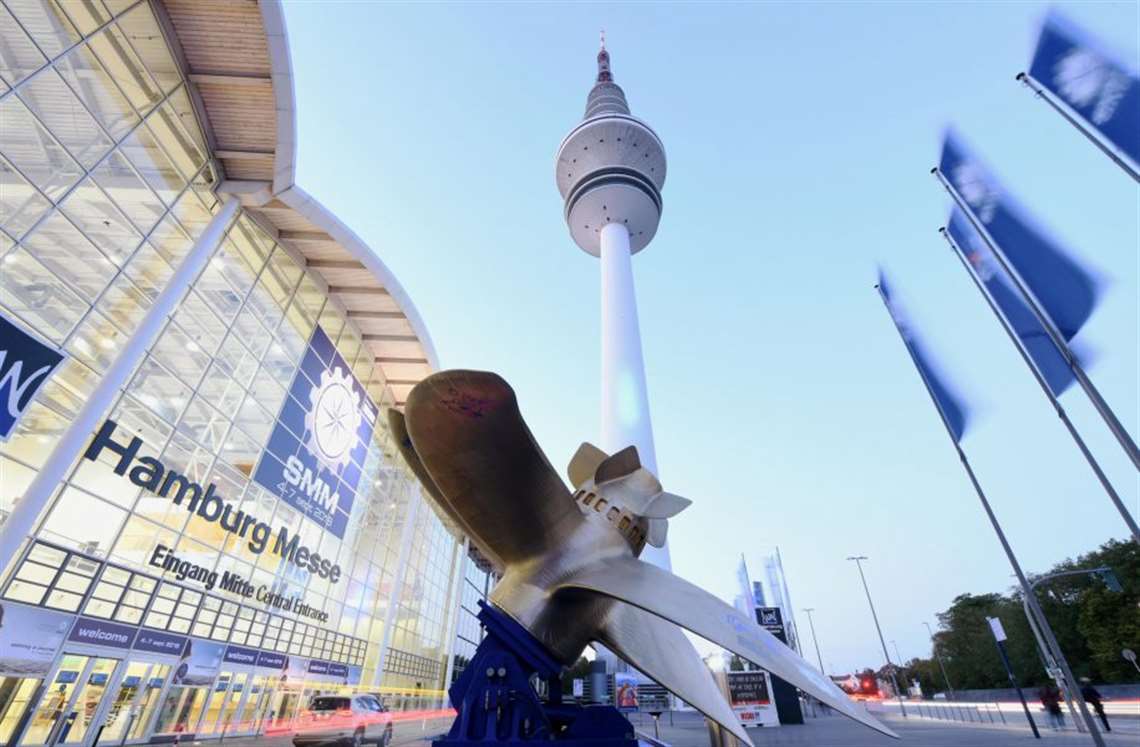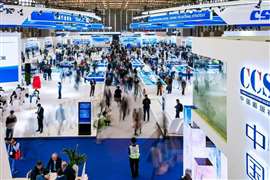Coronavirus Challenge To Marine Industry Could Be Long-Term, Industry Experts Say
14 May 2020

The marine industry may be changed forever as a result of the Coronavirus pandemic, according to an expert panel gathered—remotely—by organizers of the SMM international maritime trade fair.
The online panel discussion was part of an advance press conference for SMM and those involved included shipowners, suppliers and analysts. The theme of the event was the Coronavirus and what it means for the transformation of the maritime sector.
Every two years SMM brings together industry stakeholders from around the world. Because of the coronavirus crisis, the leading international maritime trade fair has been postponed until 2-5 February 2021. Not surprisingly, the effects of the pandemic were the main topic at the SMM Advance Press Conference. Leading experts assessed the current situation in the shipping industry and its consequences for the SMM agenda, which will focus on Green Shipping and Digitalization.
The maritime industry is facing climate change, the digitalization challenge, and now, the Coronavirus crisis. Taken together, they are of “a similar scale as the move from sail to steam,” said Martin Stopford, president of Clarkson Research.
Stopford said that globalization and its accompanying trade growth—a driving force behind much of the maritime industry—was already slowing before COVID-19 hit.
“We are moving into an era where globalization is no longer the issue. We will see more short-sea shipping and local manufacturing,” Stopford said. He anticipates three conceivable scenarios for shipping after the Coronavirus: In the best of cases sea trade will pick up again in 2023, growing by 3.2% annually, which is about average for the past 50 years. The second scenario assumes a prolonged recession, with world trade shrinking by 1% between 2020 and 2024, followed by renewed growth at a rate of 2.2%.
“In scenario 3 there is an extended recession with sea trade declining by 17% by 2024,” said Stopford of his most pessimistic forecast.
As for future ship fuels, the shipping expert expects three innovation waves.
“Diesel is wonderful stuff and replacing it is not going to be easy,” Stopford said. The first wave will see conventional fuels propelling vessels, but an increase in optimization through such things as digitalization. The next phase will see gaseous powered and hybrid or electrically powered ships featuring low emissions, advanced digital control systems and batteries. In the third wave, fuel cells will allow ships to operate emission-free. But that process will likely take decades to unfold, he said.
Cristina Aleixendri, COO at bound4blue said she sees the pandemic opening up many new opportunities for the industry.
“The coronavirus could be the driving force enabling us to achieve the decarbonization goals even before 2050,” she said. Her Catalan start-up, Bound4blue, has developed a smart sail system called Wingsail that is designed to allow shipping companies to save up to 40% of fuel and the associated emissions.
“The purpose of green technologies and digitalization is to cut emissions and costs. They must be profitable from day one, without any subsidies,” Aleixendri said.
Cost of new technology, especially in a down market, is a key challenge, said Dirk Lehmann, managing director of the Hamburg, Germany-based company Becker Marine Systems, and vice chair of SEA Europe. He calls on governments to make far-reaching concessions and provide support:
New technology tends to be expensive and businesses, naturally, do not like to incur more costs than are necessary. While “green” is good, “the question is who will pay for it?”
“Shipyards and maritime suppliers are important pillars supporting the sea transport sector. These companies and their employees are suffering from the pandemic in especially severe ways,” Lehmann stressed. “They depend on the support of the political decision-makers. Providing this support is the only way a steady supply of goods and technical progress can be ensured in Europe.”
Smart transport logistics keeps supply chains going and plays a vital role in the economy, especially in times of the coronavirus. At the same time it places a heavy burden on seafarers, some of whom have been on board for months without a break. Sadan Kaptanoglu, president of the International Shipowners Association BIMCO, has called on governments not to abandon ship owners and their crews at sea and on land Seafarers, who Kaptanoglu called the “hidden heroes” of the pandemic, are forced to take over their colleagues’ shifts as long as crew changes are impossible and there is no way for them to return to their home countries because of the risk of infection.
Since taking office, Kaptanoglu has also been advocating for greener shipping, a goal the industry must pursue despite the crisis.
“We still need to reach the 2050 reduction target for emissions, and one or two years of low revenues will not change that.”
The crisis not only affects shipping companies but classification societies like DNV GL, as well. But the class experts were well-prepared: Since introducing its remote diagnostics system DATE (Direct Access to Technical Experts) in 2018, DNV GL has performed more than 15 000 surveys remotely. “We have been lucky to have gained experience working with remote survey schemes over the past few years. DNV GL’s unique DATE service allows us to ensure safety and regulatory compliance through the use of modern technology on board,” said Knut Ørbeck-Nielssen, CEO of DNVGL – Maritime. In these times, flexibility wins. To the Norwegian class society this means granting customers more options.
“We know that many shipowners are in a difficult situation today. That’s why we grant the postponement of surveys, applying a force majeure clause,” Ørbeck-Nielssen added. Every crisis harbors an opportunity for improvement, he said.
“We are on the cusp of a renaissance of shipping and the maritime industry. Within just a few months the pandemic has turbocharged the sector’s digitalization journey, advancing it by half a decade.”
Discussing crisis management in times of the coronavirus, along with green shipping and digitalisation, the SMM advance press conference gave participants a foretaste of the industry’s key topics eight months ahead of the fair. The specialist conferences accompanying the trade fair promise to deliver fascinating new insights, as well. “We look forward to welcoming visitors from more than 120 countries next February. Here in Hamburg they will meet up with exhibitors whose innovative products and services will reflect the maritime state-of-the-art,” said Bernd Aufderheide, the president and CEO of Hamburg Messe und Congress GmbH which runs SMM.
Although the decision to postpone the show was difficult, Bernd Aufderheide said the “continued, highly dynamic development of the pandemic and the resulting ban on major events have compelled us to” move the show to Feb. 2-5 2021. The trade show, which is scheduled to be held every two years, has a focus on Green Shipping and Digitalization.
He said that 95% of exhibitors scheduled to appear in September have already agreed to participate in February. reschedule SMM to February 2021. The vast majority of exhibitors support the new dates. We have been receiving plenty of positive feedback. We are therefore confident that we have made the right decision,” said Aufderheide. The expo CEO takes an optimistic view of the future: “Together we will overcome this crisis and host an SMM that will live up to the high standards everyone expects.”
POWER SOURCING GUIDE
The trusted reference and buyer’s guide for 83 years
The original “desktop search engine,” guiding nearly 10,000 users in more than 90 countries it is the primary reference for specifications and details on all the components that go into engine systems.
Visit Now
STAY CONNECTED




Receive the information you need when you need it through our world-leading magazines, newsletters and daily briefings.
CONNECT WITH THE TEAM












